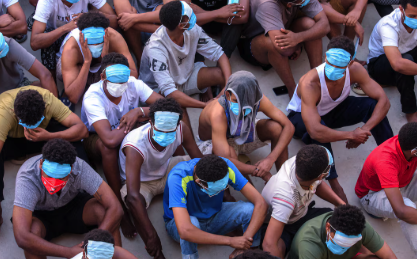By Peter John
A Kenyan university student who was trafficked into a violent cyber-scam network in Southeast Asia has won a landmark case after the Employment and Labour Relations Court awarded him KSh 5 million for the horrific violations he endured.
Justice Byram Ongaya delivered the judgment on Thursday, finding that the young man had been deceived by Kenyan recruiters who promised him a lucrative job in Thailand, only to hand him over to transnational criminal syndicates operating along the Thai–Myanmar border.
The court heard that the recruiters escorted him from JKIA, monitored him during his flight via WhatsApp, and ensured he was smuggled into Myanmar, where he was locked inside a heavily guarded scam compound.
The student, who had deferred his university studies in hopes of a better opportunity, had paid a KSh 200,000 commission to agents linked to Gratify Solutions International Ltd, a company registered just months before it facilitated his travel.
Upon arrival in Thailand, he and others were driven across the border into Myanmar and delivered to armed gangs running large-scale online fraud operations.
Inside the compound, he was subjected to forced labour, psychological torture, starvation, and extreme physical punishments.
He told the court that he was beaten by militia forces, locked in dark rooms when he failed to meet impossible fraud targets, and forced to survive on frogs and snakes.
The victim had shared his story publicly earlier this year in a Citizen TV report, describing his experience as slavery and servitude.
His testimony was supported by evidence including M-Pesa transactions and WhatsApp communications, which linked Virginia Wacheke Muriithi, Ann Njeri Kihara, and Boniface Owino to the trafficking syndicate.
Justice Ongaya concluded that the three, together with their company Gratify Solutions International Ltd, were responsible for subjecting the petitioner to human trafficking, degrading treatment, forced labour, and violations of his fundamental freedoms.
The court ordered the respondents to pay him KSh 5 million by February 1, 2026, and directed them to cover all legal costs.
Advocate Lillian Nyangasi, who represented the victim, noted that the company had been operating without meeting the requirements of the National Employment Agency and was therefore unlawfully recruiting and exporting Kenyan workers.
Speaking after the judgment, the young man said the compensation would allow him to clear the debts that have weighed heavily on his family and enable him to return to university.
He was one of 78 Kenyans rescued and repatriated from Myanmar earlier in the year, though he warned that many more remain trapped in the scam compounds.
According to survivors, hundreds of Kenyans and other Africans are still held inside similar centres, forced to work under brutal conditions with little hope of escape.



















